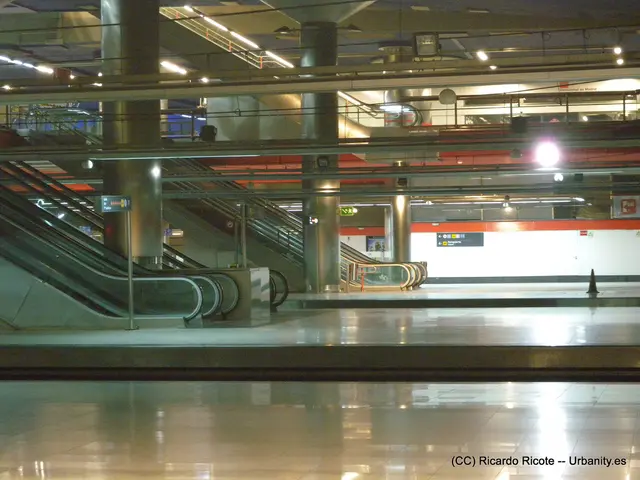Simplifying your surroundings promptly encourages tranquility within, revealed through 7 astonishing advantages of minimalism on the brain.
Craving a more peaceful mind? It's not just your house that can benefit from minimalism. In fact, embracing this lifestyle can transform your brain too! Here's how:
- Say Goodbye to Stress: A tidy, minimalist space not only looks pleasing, but it also helps reduce stress and noise in your brain. With less clutter weighing you down, your nervous system gets the message that you're safe and can focus[1][2].
- Better Sleep: A clutter-free bedroom helps promote better sleep[1]. Your bedroom becomes a calm, peaceful sanctuary, allowing you to wind down and catch some much-needed Zs.
- Reconnect with Your Values: Minimalism can help bridge the gap between the life you're currently living and the one you truly want. When you let go of excess, your space reflects you, not your past or guilt[1].
- Boost Your Energy: A clean, minimalist space helps reduce mental and physical clutter, boosting your energy and making you feel lighter[1]. This extra energy will have you feeling motivated and clear-headed.
- Curb Emotional Spending: Minimalism encourages intentional buying rather than mindless consumption[1]. This helps reduce spending on unnecessary items, leading to a more intentional and fulfilling life.
- Strengthen Habits and Routines: With everything in its place, maintaining routines, like an organized morning routine or achievable cleaning routine, becomes easier[1].
- Create Space for Joy: By getting rid of clutter, you make room for the things in life that truly matter, leading to a happier and more fulfilled life.
Avoid these common minimalist decluttering mistakes to ensure a successful brain reset:- Focusing too much on decluttering and shopping- Keeping items "just in case"- Lack of organization after decluttering- Sentimental attachment to items- Ignoring essential items- Impulsive purchases- Neglecting regular maintenance of a decluttered space
By steering clear of these mistakes, you can reap the benefits of a minimalist lifestyle and enjoy a peaceful, clutter-free life!
- Embrace mental wellness by implementing a lifestyle of minimalism, promoting a clearer mind and reducing stress levels in the workplace.
- Invest in your health and wellness through fitness and exercise routines, complementing your minimalist lifestyle for a more balanced personal growth.
- Achieve productivity at work by setting goals for career development and skills training, using product-reviews to guide your self-education and self-improvement journey.
- Cultivate mindfulness practices to enhance mental health, exploring meditation and yoga as part of a holistic lifestyle transformation.
- Nurture your work-life balance by learning to practice mindfulness while shopping, focusing on essential items and avoiding impulsive purchases for a more intentional and fulfilling life.
- Pursue goal-setting techniques as part of your mental health regimen, ensuring that the path to personal growth is intentional, clear, and achievable with a minimalist mindset.
- Build a decluttered living space conducive to productivity, constructed with the expert advice from product-reviews and tips on skills-training in organization and interior design.
- Prioritize sleep hygiene as part of your overall health and wellness routine, ensuring a decluttered bedroom and adhering to a consistent sleep schedule to optimize mental and physical health.








